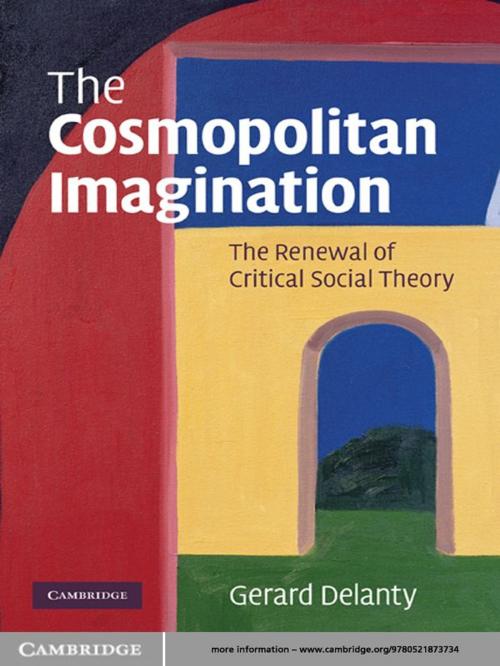The Cosmopolitan Imagination
The Renewal of Critical Social Theory
Nonfiction, Social & Cultural Studies, Social Science, Sociology, Political Science| Author: | Gerard Delanty | ISBN: | 9780511700088 |
| Publisher: | Cambridge University Press | Publication: | October 8, 2009 |
| Imprint: | Cambridge University Press | Language: | English |
| Author: | Gerard Delanty |
| ISBN: | 9780511700088 |
| Publisher: | Cambridge University Press |
| Publication: | October 8, 2009 |
| Imprint: | Cambridge University Press |
| Language: | English |
Gerard Delanty provides a comprehensive assessment of the idea of cosmopolitanism in social and political thought which links cosmopolitan theory with critical social theory. He argues that cosmopolitanism has a critical dimension which offers a solution to one of the weaknesses in the critical theory tradition: failure to respond to the challenges of globalization and intercultural communication. Critical cosmopolitanism, he proposes, is an approach that is not only relevant to social scientific analysis but also normatively grounded in a critical attitude. Delanty's argument for a critical, sociologically oriented cosmopolitanism aims to avoid, on the one hand, purely normative conceptions of cosmopolitanism and, on the other, approaches that reduce cosmopolitanism to the empirical expression of diversity. He attempts to take cosmopolitan theory beyond the largely Western context with which it has generally been associated, claiming that cosmopolitan analysis must now take into account non-Western expressions of cosmopolitanism.
Gerard Delanty provides a comprehensive assessment of the idea of cosmopolitanism in social and political thought which links cosmopolitan theory with critical social theory. He argues that cosmopolitanism has a critical dimension which offers a solution to one of the weaknesses in the critical theory tradition: failure to respond to the challenges of globalization and intercultural communication. Critical cosmopolitanism, he proposes, is an approach that is not only relevant to social scientific analysis but also normatively grounded in a critical attitude. Delanty's argument for a critical, sociologically oriented cosmopolitanism aims to avoid, on the one hand, purely normative conceptions of cosmopolitanism and, on the other, approaches that reduce cosmopolitanism to the empirical expression of diversity. He attempts to take cosmopolitan theory beyond the largely Western context with which it has generally been associated, claiming that cosmopolitan analysis must now take into account non-Western expressions of cosmopolitanism.















